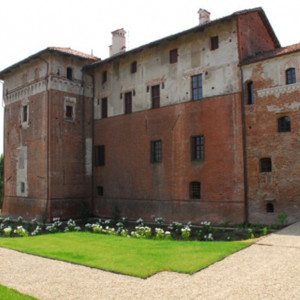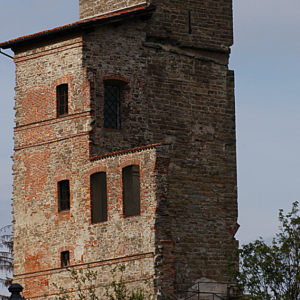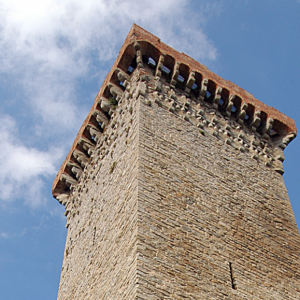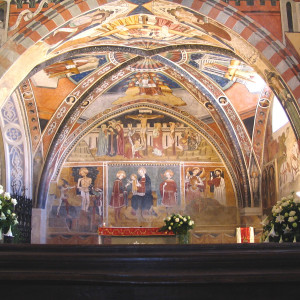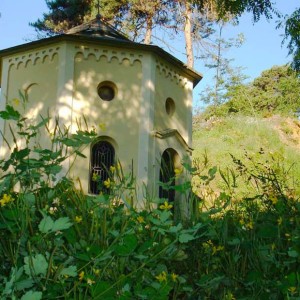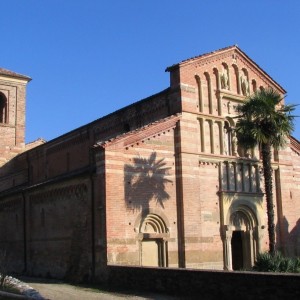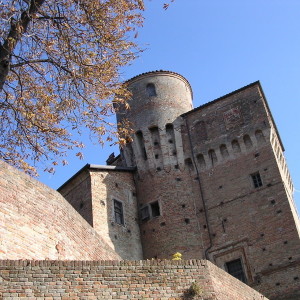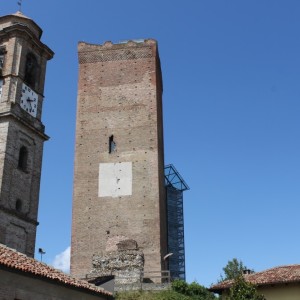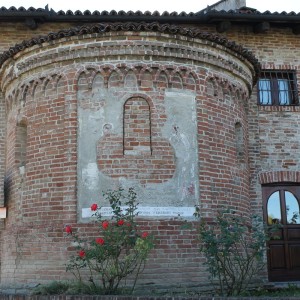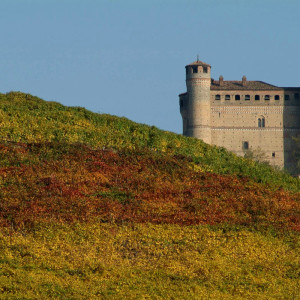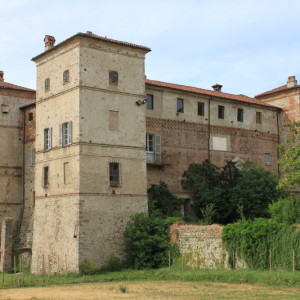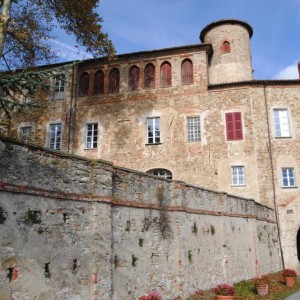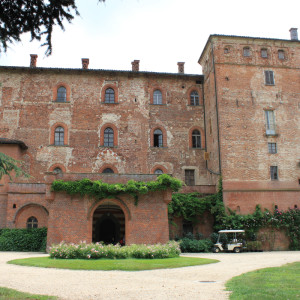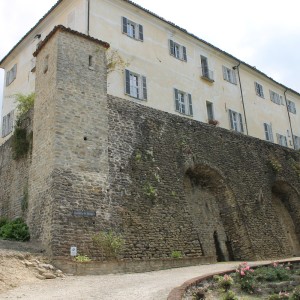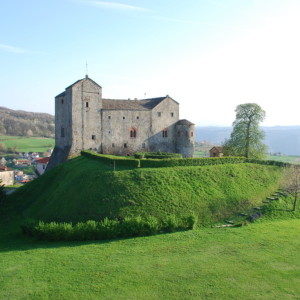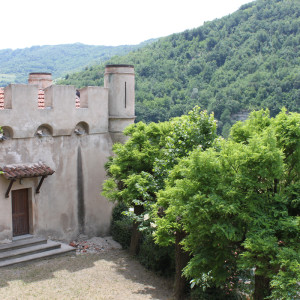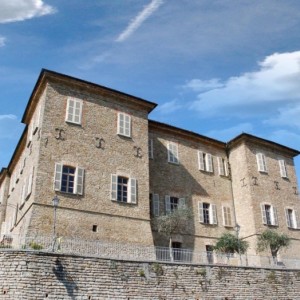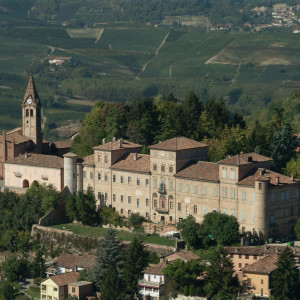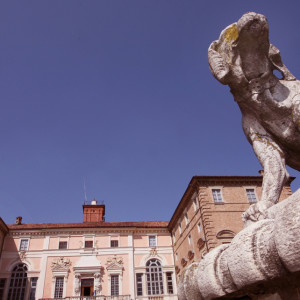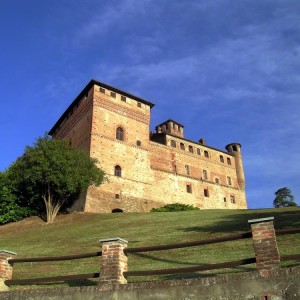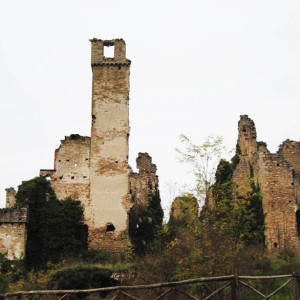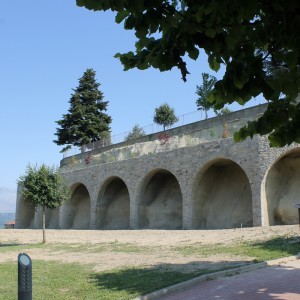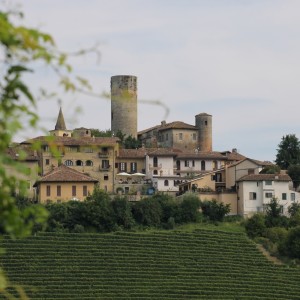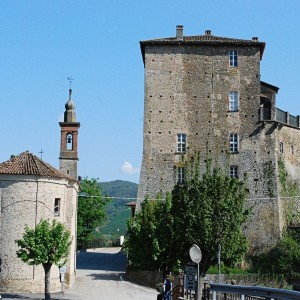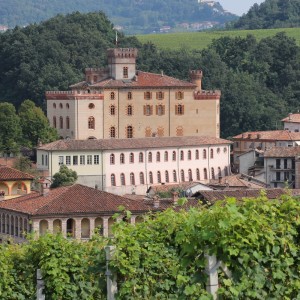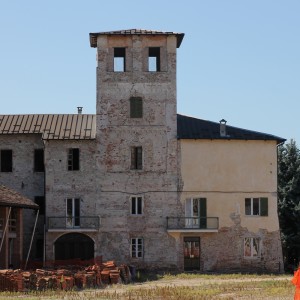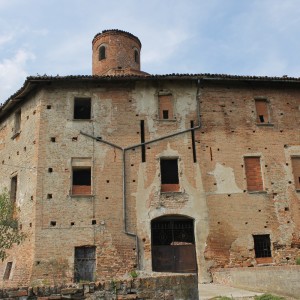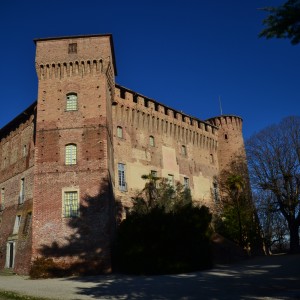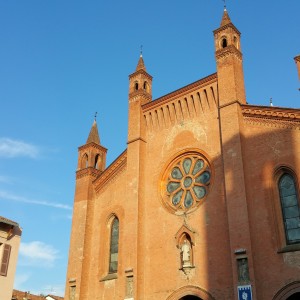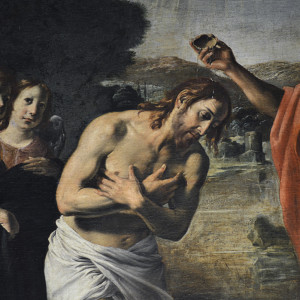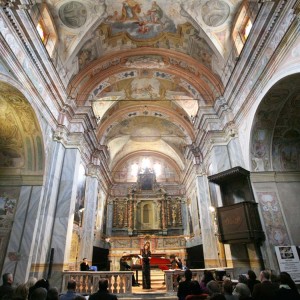The castles of Lagnasco
The castles of the Marquis Tapparelli D’Azeglio of Lagnasco consist of three different buildings that were built at the end of the XI century and developed until the XVIII century.
Torre di Camerana
The high medieval tower of Camerana stands among the castle ruins in the present structure of the village; the manor had belonged since the 13th Century to the Del Carretto family, who kept it for several centuries.
Murazzano Tower
This ancient building stands on a hilltop in a beautiful public garden which offers a wonderful view on the surrounding landscape.
San Fiorenzo Church
The small but beautiful church of San Fiorenzo is an old rural chapel. You can find it near Mondovì, in the small village of Bastia.
Piloni Sanctuary
On the Sacro Monte in Montà d’Alba you can visit the Sanctuary and a Chapel of the Holy Tomb, which was built on Roman walls. In 1775 13 piers were built with Via Crucis scenes painted in them.
Vezzolano Abbey
The Church of Santa Maria di Vezzolano was built in the fervid atmosphere of reforms of the 11th Century, when a large number of religious complexes were built.
Castle of Roddi
Roddi is on the hills towards Alba and it is a medieval village around its castle. Now, it hosts a cookingh school a nd a museum devoted to the truffle and its “inventor”, Giacomo Morra.
Barbaresco Tower
It has a square plan with a side length of 9 metres and it is thirty-six metres high; up to the lower half the walls are three metres thick.
Santa Margherita Church
If you walk in the city center of Alba, you will see a lot of religious buildings. A lot of them show medieval origins. The church devoted to Saint Margaret is one of them.
Serralunga d’Alba castle
The strongly vertical Castle of Serralunga d’Alba rises on the amazing landscape of Langa, in the very heart of Barolo wineyards and landscape.
Saliceto castle
The first document about a castle in this place dates back to 1142, and it was mentioned in a conveyance of a huge piece of land to Ugo, the son of Bonifacio del Vasto.
Sale San Giovanni castle
This castle is near Ceva and it rises on the hills, where you can enjoy the wonderful landscape.
Pralormo Castle
The building originally dates back to the 13th century, when it was a square-shaped fortress built to defend the area of Pralormo. The manor’s history is naturally linked to that of the families that have owned it through the centuries.
Perno castle
Located in a stunningly panoramic position, Monforte d’Alba is the last town in the Barolo Langa. The narrow, steep streets lead up to the historic centre with a piazza, baroque buildings and a bell tower.
Prunetto castle
Prunetto was already mentioned among the “cortes in desertis locis” (courts in remote regions) donated by the Emperor Otto I to Marquis Aleramo.
Monesiglio Castle
The centre of Monesiglio, with its castle, has very ancient origins, probably of II century b.C. Some archeological discoveries, like heandstones and funeral stones, prove the frequentation of Liguri Stazielli.
Mango Castle
Today the castle is Mango’s show-piece. For centuries it was the summer residence of the marquises of Busca, with its luxurious furnishings and gardens renowned for their ornamental plants and flower beds. The “Colline del Moscato” Regional Enoteca is housed on the ground floor of the castle.
Magliano Alfieri Castle
Place of big strategic importance in the past, the town of Magliano has been feud of Alfieri’s family since 1240. In the middle of the center, there is the castle and the area of “Romantic Street”.
Govone Castle
Set on the border between Roero and Monferrato, the town of Govone dominates the large Tanaro valley from the summit of the hill.
The castle is the symbol and the pride of the village, that is in to the Unesco World Heritage list.
Grinzane Cavour Castle
The district is divided in two centers: Gallo, which hosts handmade and industrial activities (Sebaste torrone and Mondo) and Grinzane Cavour, which hosts a few houses around the beautiful castle, that is in to the Unesco World Heritage List.
Gorzegno Castle
“… I know well Gorzegno, because in youth I used to go there frequently with my father to carry the wine and the chestnuts…”.
With theese words Beppe Fenoglio describes this little village (about 330 inhabitants) set in the heart of Langhe, in Valle Bormida.
Diano d’Alba Castle
In Diano d’Alba you can see one of the most fascinating point of view: the hills of Barolo connected with Roero hills or Alta Langa picks.
Castiglione Falletto Castle
The little town of Castiglione Falletto is dominated by the medieval castle which is clearly visible thanks to the central high and massive tower.
Borgomale Castle
Between Alba and Cortemilia there is the town of Borgomale, which is dominated by the “five towers castle”of XV century.
Barolo Castle
In the centre of Barolo town there is a medieval castle, where the Barolo wine was born. Today, it hosts the Wine Museum (Wi.Mu) and the Regional Wine cellar of Barolo Producers.
Ancient Abbey of San Frontiniano
Saint Cassiano’s and Saint Frontiniano’s characters are linked to Alba. They are two of the protective saints of the city, lived at the beginning of the IV century A.D. They came in the ancient roman town of Alba Pompeia, during their diffusion and preaching of the Gospel.
Volta Castle
Volta castle is set in Barolo, along the road who brings from La Morra to Novello, in an amazing location. Unfortunately its preservation condition is quite crumbling.
Monticello d’Alba Castle
The castle of Monticello d’Alba is situated near Alba, in the heart of Roero’s hills. Today is one of the best conserved medieval building of the area.
St. Lawrence’s cathedral
San Lorenzo cathedral is the principal place of catholic worship of Alba, the most ancient and Episcopal place. The massive building in Gothic style dominates the main square.
St. Baptist John’s church
After the San Lorenzo cathedral and the already disappeared Santa Maria del Ponte, it’is the most ancient church of Alba. Inside it there is an extraordinary heritage of works of art from XIII century.
St. Joseph’s Church
In one of the most interesting places of the historical center, there is the Church which rise up on a precedent private house with Roman and medieval persistence inside.

